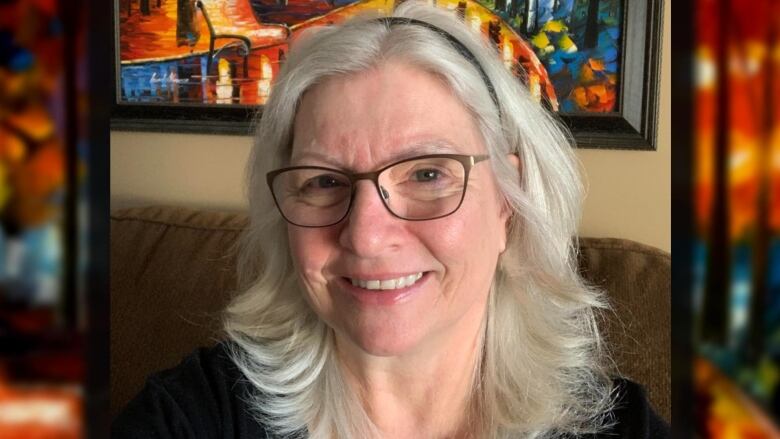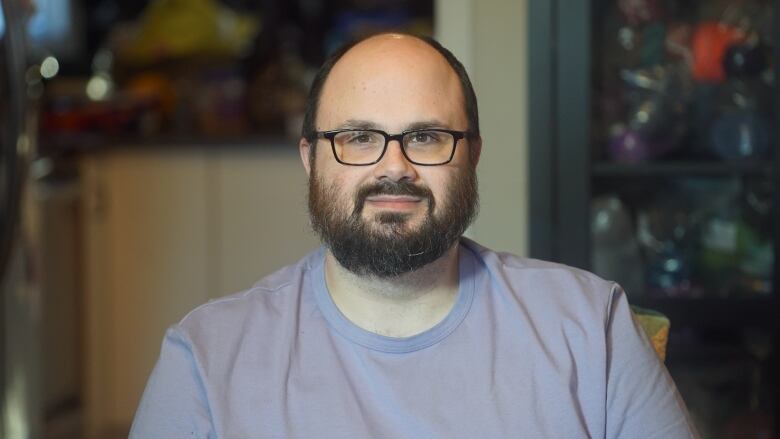Thousands 'suffering in silence' as sleep disorder clinic backlog balloons: Doctors Manitoba
Waiting list for sleep disorder assessments has doubled during pandemic, says president

Sue Moon has been languishing on three or four hours of sleep a night while waiting for confirmation of something she's already sort of known for a long time.
Her loud breathing keeps her husband up at night. She wakes up exhausted, with little energy to play with her five grandchildren. She's tired all the time.
"I have not had a good sleep for 2 years," said Moon, 62, who has now beendiagnosed with sleep apnea and insomnia.
"It does impact your life in some ways. You don't have the energy to do a whole lot. You go out for a couple of hours and that's it you just got to get home. You're just dog tired."
Earlier this month, Moon got into the Sleep Disorder Centre at Winnipeg's Misericordia Health Centre, more than two years after she says she was put on the wait-list.
Now that she has a sleep apnea diagnosis, she will soon get a CPAP (continuous positive airway pressure)machine, which streams air through the airways and can boost sleep quality.
That holds promise for Moon, but she remains frustrated her quality of life, and that of thousands more Manitobans, has suffered due to growing backlogs.
"There are a lot of patients suffering in silence," said Dr. Kristjan Thompson, president of Doctors Manitoba and an emergency room physician at St. Boniface Hospital.
The advocacy group for physicians estimates almost 4,800 fewer sleep disorder tests were done during the pandemic, as resources were diverted to hospital patients with COVID-19.
That represents a 70 to 80 per cent drop and effectively doubled the waiting list to about 9,500, according to new estimates released by Doctors Manitoba last week.
It says there are now, in total,136,000backlogged surgeries and diagnostic procedures in the province, up about 6,000 from earlier this fall. Much of the latest bump is driven by backlogged sleep disorder studies, Doctors Manitoba says.
"I feel kind of guilty that I got my test, finally," said Moon. "How do you catch up on a backlog like that?"
The province is expected to announce details about atask force to tackle the backlog sometime soon. Earlier this year, $50 million was earmarked for the issue, but few other details have been released.
In an email, a spokesperson for the Winnipeg Regional Health Authorityconfirmed Doctors Manitoba's estimateon the backlog insleep disorder tests is accurate, and sleep studies are now operatingat close to full capacity.
"Respirologists are identifying and treating any patients deemed to be at highest risk," the spokesperson said.
Virtual appointments and home study equipment are also being used to help address the backlog.
Waitincreases other risks
When those who suffer from sleepapnea try to rest,muscles in the back of the throatrelax and repeatedly obstruct the airway, leading to poor sleep quality. Studies are required to make a diagnosis and treatment plan.
"If you don't treat them in a reasonably quick manner, what can happen is that delayed diagnosis basically puts them at risk of having poor quality of life and poor work performance,"says sleep apnea expert Dr. Najib Ayas.
Without that intervention, prolonged nightly low oxygen levels may lead to higher blood pressure,said Ayas, an associate professor of medicine at the University of British Columbia.

Sleep apnea can alsoincrease the odds of developing dementia and comes with three times the normal risk of cardiovascular disease like strokes, heart attacks, arrhythmias and aortic disease. Patientshave also been shown to be three to five times more likely to get into a car crash or accidents on the job,Ayas said.
Waiting for treatment can also causeor exacerbateexisting mood disorders.
"The depression makes the sleep worse and then the sleep, once it's worse, actually makes depression worse,"said Ayas. "It can be a little bit of a vicious circle."
Anxiety, depression worsened
It's one Matthew Molnar, 40, knows all too well.
"I haven't gotten a good night's sleep since I was in my 20s," he said."I'm constantly exhausted."
That exhaustion makes his depression and anxiety worse, said Molnar. It's been a challenge to hold down a job, "placing additional stresses on the people around me, my friends, my family."

He was diagnosed with sleep apnea about a decade ago and has been living with anxiety and depression for years as well.
He has tried a range of traditional pharmaceutical, behavioural and physical interventions for all three conditions, but nothing seems very effective. He trieda CPAP machine, but couldn't fall asleep with it on.
In 2017, his psychiatrist told him in order to qualify for cutting edge procedures that could help with his mental health challenges, he'd first have to get his sleep apnea under control. That meanta more current sleep disorder test.
After waiting more than two years for an appointment, he paid for a sleep study at a private clinic and was diagnosed with severe chronic sleep apnea. Molnar says he stops breathing about 55 times an hour in his sleep.
He got on a wait-list early last year for a jaw surgery that could help. The pandemic response has kept that from happening.
Molnar, who has degrees in political science and public administration, questions whether a task force will have much of an immediate effect.
"A task force feels to me to be the policy equivalent of 'thoughts and prayers.' They don't really provide any relief to the individuals who are suffering."
This story was possible in part thanks to Manitobans who filled outCBC'ssurvey on the pronounced effectCOVID-19 is having on Manitoba's health-care system.In it, we asked health-care workers, patients and their loved ones to send us their top concerns and questions about care during the pandemic.













_(720p).jpg)


 OFFICIAL HD MUSIC VIDEO.jpg)
.jpg)



























































































